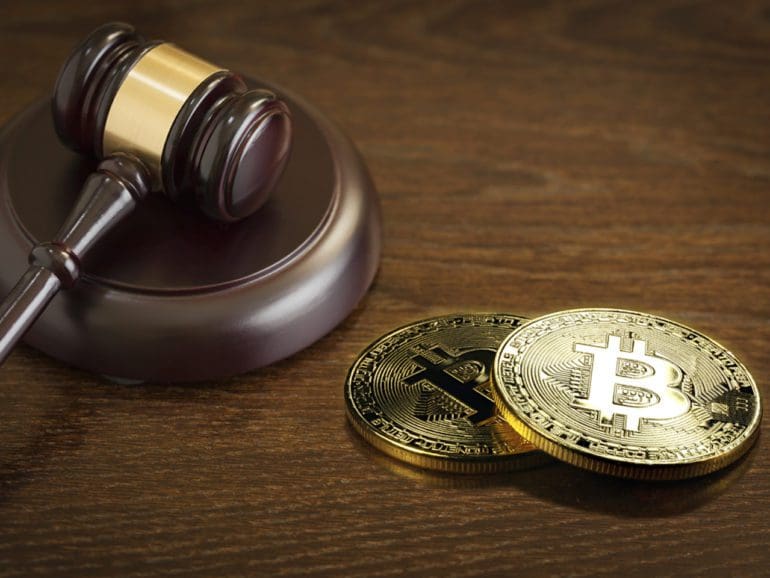For crypto, a sector that has long demanded more regulatory clarity, 2023 has so far been a wake-up call.
Regulators that have been dragging their feet have embarked on a crackdown, each week bringing with it a new story of lawsuits, settlements, and rejection from the financial system.
The SEC, led by Gary Gensler, is on the warpath. The chairman continues to ruffle more than a few feathers within the crypto community and has recently reiterated his belief that all cryptocurrencies save bitcoin are securities.
This stance, without implementing official classification, has led to a hazy ban on staking on the crypto exchange, Kraken, as well as seemingly endless lawsuits.
RELATED: So Gary, are cryptocurrencies securities?
The Challenge of Compliance
Needless to say, compliance within this changing landscape has become ever more treacherous.
The FTX fiasco is cited by many as a trigger to the regent regulatory crackdown. For many, the company’s extensive evidence of fraud was a result of the regulatory grey area that covers digital assets.
The technology behind crypto has been accepted as a vehicle to address pain points in the banking system. Incumbent institutions have continued to invest in the technology even in the wake of FTX.

Dan Doney, Founder and CTO of Securrency, explained that he had seen an influx in interest following the FTX fall, “We’ve seen a tremendous increase in the interest and actual willingness to execute from financial institutions in the new Web3 world.”
“Rather than discouraging our institutional partners, this has actually dramatically accelerated their commitment to using blockchain tools and their desire to move out.”
While the interest is there, the ability to be compliant within the regulatory fog could be restricted until fundamental components are decided.
“The worst thing that can happen now is regulatory uncertainty,” said Gregory Mall, Head of Investment Solutions at SEBA Bank. “Where you’re not sure whether or not you can actually perform a service and charge for that. That’s something that should be avoided at all costs. So even if it’s a harsh regime, it’s better to have some clarity on it.”
He and many others in the space believe that the fundamentals are already there for compliance.
“The rules are actually fairly straightforward, applied globally, regarding investor protection, fair markets, the need to disclose large transaction moves, tax disclosures, etc. Nearly everyone agrees on that,” said Doney.
“What you see now is regulators recognizing the need to regulate the unregulated things. So regulatory uncertainty in this whether or not blockchain is blockchain, whether or not crypto instruments are a security or not a security is only an edge scenario.”
The Stablecoin dilemma
In a recent interview with Bloomberg, Kristalina Georgieva, Managing Director of the IMF, voiced the opinion that stringent regulation was preferable to an outright ban.
“What we are seeing is still a lot of confusion around what digital money is,” she said. “And so our first objective is to differentiate between central bank digital currencies that are backed by the state and publicly issued crypto assets and stablecoins that are backed.”
However, it seems she, too, believes the option to ban the assets shouldn’t be taken off the table. She stated at the G20 meeting for finance ministers and central bank governors in Bengaluru, India, “If regulation fails, if you’re slow to do it, then we should not take off the table or ban those assets because they may create financial stability risk”.
Earlier this month, the SEC voiced their intention to take action against Paxos, the company responsible for the minting of Binance’s stablecoin BUSD, alleging that the coin is an unregistered security. Paxos disagrees.
While the SEC has, for some time, led a campaign of similar accusations against various digital currencies, this is one of their first actions against stablecoins.
Now considered to be a major element of DeFi adoption, backed stablecoins have remained mainly untouched, and many regulatory bodies around the world have classified the assets as utilities.
Many believe the assets could execute many of the benefits of DeFi and are concerned innovation could be stunted by this regulation. Currently, experts assessing the assets believe existing stablecoins are unlikely to be compliant with the proposed recommended standards.
Circle CEO, Jeremy Allaire told Bloomberg on February 23, “I don’t think the SEC is the regulator for stablecoins. There is a reason why everywhere in the world, including the US, the government is specifically saying payment stablecoins are a payment system and banking regulator activity.”
“Not all stablecoins are created equal. But, clearly, from a policy perspective, the uniform view around the world is this is a payment system, prudential regulator space.”
The regulatory balancing act
This ongoing lack of clarity and debate on regulation has created a challenging environment for compliance.
News of Custodia Bank’s rejection of a master account brought confusion to the crypto sector. The bank, often considered a trailblazer for crypto banking compliance, uses the regulation applied to the finance sector to underpin many of its processes.

“We believe that the Fed’s decisions are misguided and wrong,” said Caitlin Long, CEO of Custodia Bank at the announcement of the rejection, which it is now in the process of appealing. “Recent turmoil within the digital asset sector, caused by fraudulent actors and lax oversight, has rightly spooked financial regulators.”
Custodia Bank has attempted to create a business that toed the line of compliance while providing solutions to the issues present in the financial industry as a whole, as well as the crypto sector.
“What’s lost amid the noise is that Custodia Bank’s non-leveraged, 100% liquid business model offers a solution to these risks. We are confident this reality will become clear to bank regulators in due time,” said Long.
RELATED: Custodia Bank rejection: What’s next?
Many in the crypto community agree that an ongoing focus on regulation is necessary. However, many are concerned that over-regulation and bans could lead to stunted innovation in the US.
“It’s a bit of a tightrope act,” said Mall. “On the one hand side, I think the American regulators, want to protect retail investors. At the same time, they need to keep the US as an innovative hub when it comes to this new nascent, emerging asset class as well as technology.”
“There’s a danger of a lot of talent and innovation moving out of the US more towards more regulatory friendly jurisdictions. And Europe could obviously be one of the beneficiaries of that movement.”
Bernhard Blaha, CEO of The People’s SCE explained that over-regulation of crypto assets in China had ultimately led to the destruction of the market’s appeal to crypto businesses.
“If something is regulated, there has to be a lot of thought put into it,” he said. “There has to be a lot of expertise behind it, to actually create proper regulation and not just destroy the market without bringing any kind of benefit to consumer protection.”


